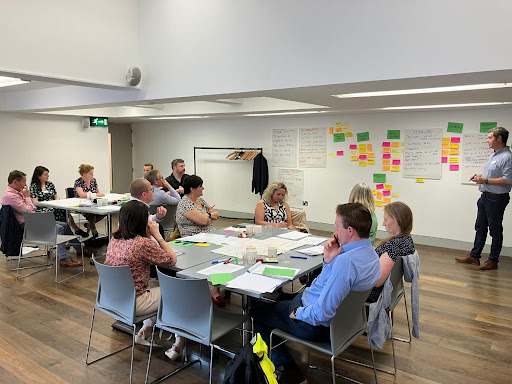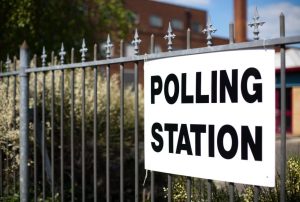Fuel Poverty Coalition launches report for ‘new Fuel Poverty Strategy’
9 October 2023
By Jamie Miller
Last week, on 2 October 2023, the Fuel Poverty Coalition launched a new report, “A New Fuel Poverty Strategy for Northern Ireland”. Fuel Poverty is on the rise in Northern Ireland. Over the past 18 months many members of the Fuel Poverty Coalition (FPC) have experienced a significant rise in the number of households seeking emergency support for fuel poverty due to soaring energy prices and the cost-of-living crisis.
In June 2022 National Energy Action carried out Northern Ireland wide polling to evaluate the impact of rising energy prices on homes. The findings of the study are stark and should be a cause for serious concern.
The results show that at least 45% of NI households are now considered to be living in fuel poverty. 80% of households had cut down on their central heating (energy rationing). And, most worryingly, more than 1 in 10 households had to forego meals to meet the rising energy costs. This means that choosing between heating and eating is very much a reality for around 100,000 homes in Northern Ireland.
Studies show that Excess Winter Deaths are almost three times higher in the coldest quarter of housing than in the warmest quarter. We also know that deaths from cardiovascular diseases are directly linked to exposure to excessively low indoor temperatures for long periods of time. There is increasing evidence to show that children living in cold homes are more than twice as likely to suffer from a variety of respiratory problems than children living in warm homes. Exposure to cold can increase the level of minor illnesses such as colds and flu and exacerbates existing conditions such as arthritis and rheumatism.
Simply put, fuel poverty exposes households to the cold, and the cold kills.
It is therefore clear that action is needed to improve health outcomes and support the most vulnerable people who are at most risk of needless death and morbidity.
Northern Ireland is currently the only region of the UK without a statutory fuel poverty target. The last Fuel Poverty Strategy for the region was published over a decade ago in 2011. As such, it comes as no surprise that we lag behind our UK counterparts in terms of strategic action on fuel poverty and the quality of interventions.
Thankfully, after years of lobbying from our membership, the Department for Communities (DfC) have initiated work on the development of a new Fuel Poverty Strategy for NI. This is a very welcome development at a pivotal time, a time when fuel poverty in NI is perhaps at its greatest ebb.
To date, the Department has carried out several informal meetings with key stakeholders, to take soundings on what should be the central focus of their strategy and to help shape their consultation process. The Fuel Poverty Coalition membership are very keen to engage, support and encourage the Department in any way we can. Our members believe that the new strategy can be an opportunity to influence real positive change in Northern Ireland. To address some of the inequalities facing our society and to ensure that everyone has a warm, safe and healthy home.
To ensure we can get the best possible outcomes for fuel poor homes, the coalition membership undertook a strategy and policy development session to identify what members believe should be the key strategic priorities, tangible outcomes, and deliverable action points central to the new strategy, so that it can deliver effectively for fuel poor homes in here.
The session was attended by over 30 participants from across a range of stakeholders including experts in the areas of energy, consumer protection, housing, health, and social justice. A number of themes were discussed and debated, and members were challenged to identify principles, targets and actions which could feed into the future strategy. Discussion ranged from how we can best identify and target need, ensure effective education and encourage leadership, to the ‘Just Transition’ and the future of Oil in Northern Ireland.
This strategy development session led to the FPC’s new report which outlines our memberships recommendations for the Department for Communities along with a detailed report on best practice case studies. It is our hope that this will be a vital tool in helping shape the future of fuel poverty action in Northern Ireland. The report outlines hey strategic priorities, tangible outcomes and deliverable action points.
We are excited about the potential that a new strategy could unlock and we will continue to work tirelessly to ensure the best possible outcomes for fuel poor homes.
Read in full the Fuel Poverty Coalition’s Report, “A New Fuel Poverty Strategy for Northern Ireland.”
Jamie Miller is Policy Officer at National Energy Action, NI








